Warning: Illegal string offset 'source_type' in /home/mychutej/public_html/blog/wp-content/plugins/egany-facebook-to-wp/egany_facebook_to_wordpress.php on line 1099
The Commissioner for Health, Dr Jide Idris, was joined at a briefing in Alausa on Tuesday, by the Commissioner for Information and Strategy, Steve Ayorinde. He confirmed an outbreak of cholera in three Local Government Areas of the state. The cases presented with the diarrhoea and vomiting associated with cholera.
The cases have been linked to the heavy rainfall being experienced and the aftermath of flooding in the state.
Read More on the public health effects of the #LagosFlood
Diarrhoea is the passage of four or more loose stools in 24 hours. A loose stool is any stool that can take the shape of a container.
It is typically a symptom of an infection in the intestinal tract, which can be caused by a variety of bacterial, viral and parasitic organisms. Diarrhoea is easily preventable.
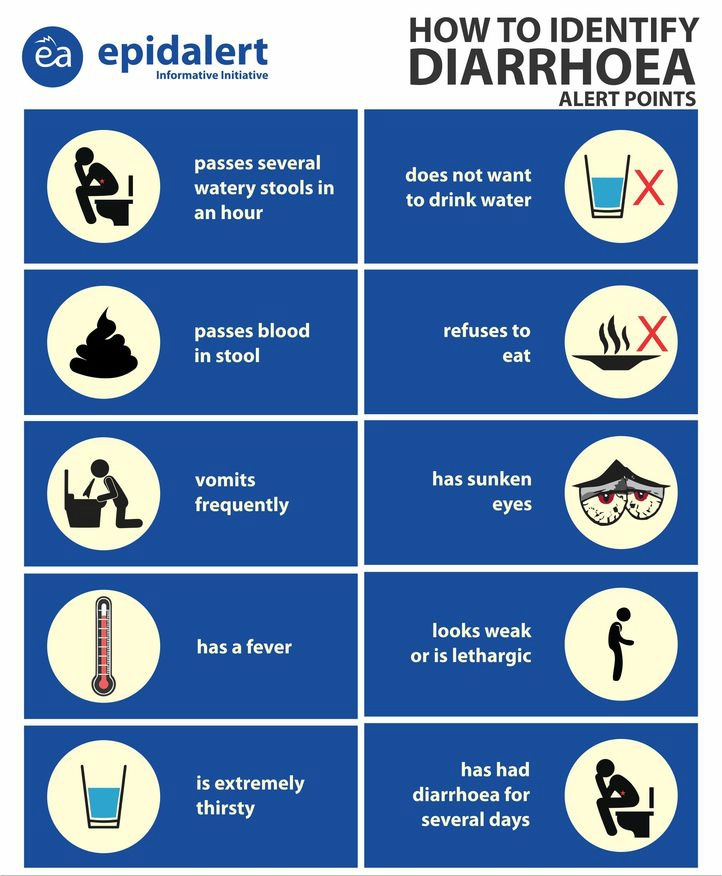
Each person needs at least 15 litres per day for drinking, cooking, and washing. Hence, the uninterrupted provision of safe drinking water is the most important preventive measure to be implemented.
One key effort to prevent and control an outbreak of diarrhoea is the practice of Water, Sanitation and Hygiene activities (WASH).
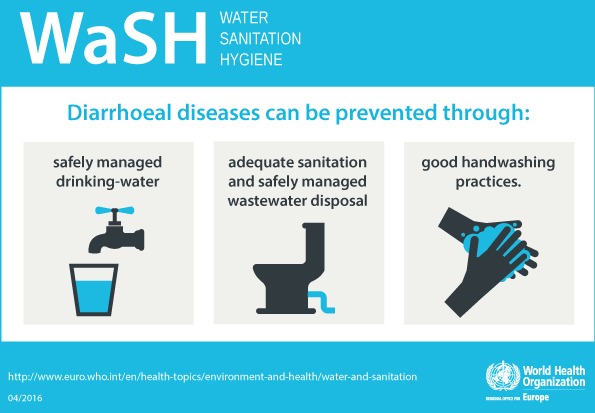
The provision of clean drinking water and practice of sanitation and basic hygiene are essential for prevention of the spread of diseases. Chlorine is the most widely and easily used, and the most affordable of the drinking water disinfectants. It is also highly effective.
Water Safety Tips:
- Bottled water with unbroken seals and canned/bottled carbonated beverages, registered by the authorizing body, are safe to drink and use.
- Boil or treat drinking water with a chlorine product.
- If boiling, bring water to a complete boil for at least 1 minute.
- If a chlorine treatment product is not available, household bleach can be used to treat water. Add 8 drops of household bleach for every 1 gallon of water (or 2 drops of household bleach for every 1 liter of water) and wait 30 minutes before drinking. Store treated water in a clean, covered container
Sanitation is particularly important when affected populations seek shelter in communal settings such as gathering places, with inadequate toilet facilities.
Sanitation Safety tips:
- Use latrines or toilets, and avoid open defecation
- Wash hands with soap and safe water after defecating
- Clean latrines and surfaces contaminated with faeces with water and bleach
Hygiene
Personal hygiene is especially important when individuals have reduced access to clean water and sanitation or are living in temporary accommodation. Floodwaters often easily carry great amounts of faecal contamination (for instance, from burst/clogged pipes, leaking soakaways), and everyone must be alerted to the need to clean all household items that they have touched. Hygiene promotion, particularly hand washing with soap and running water, is as necessary as the provision of clean water.
Hand hygiene moments: Wash your hands:
- Before eating food
- After handling uncooked foods, particularly raw meat, poultry or fish
- After going to the bathroom
- After changing a diaper or cleaning up a child who has gone to the bathroom
- Before and after tending to someone who is sick
- Before and after treating a cut or wound
- After blowing your nose, coughing or sneezing
- After handling an animal or animal waste
- After handling refuse
Through our AlertClinic Initiative, we consistently provide invaluable prevention messages, as well as location-based updates on disease-related occurrences. Sign up with us on the Google Play Store to reach out and learn more.
Join the conversation on Facebook and Twitter via @EbolaAlert and @AlertClinic. Tell us how you and your family want to #StaySafe from diarrhoeal diseases.
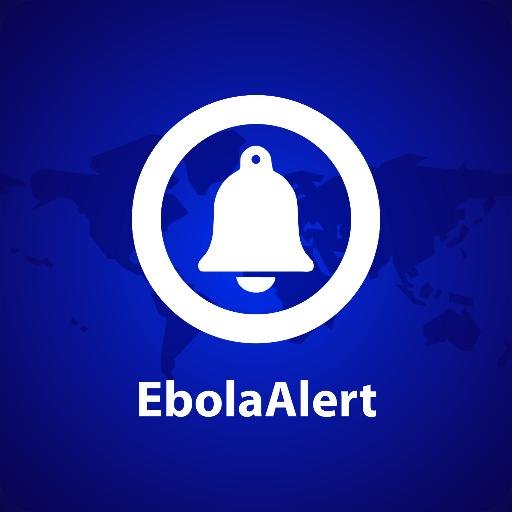
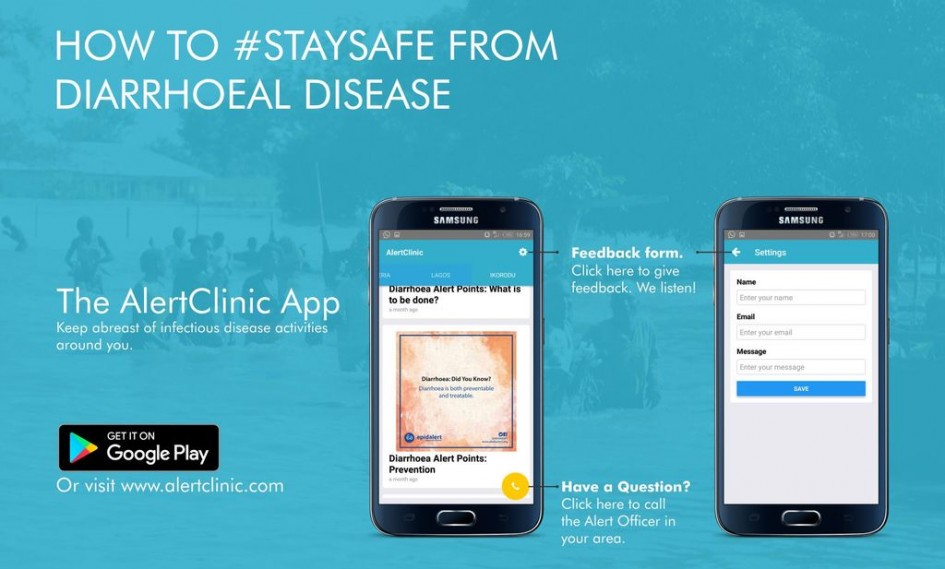
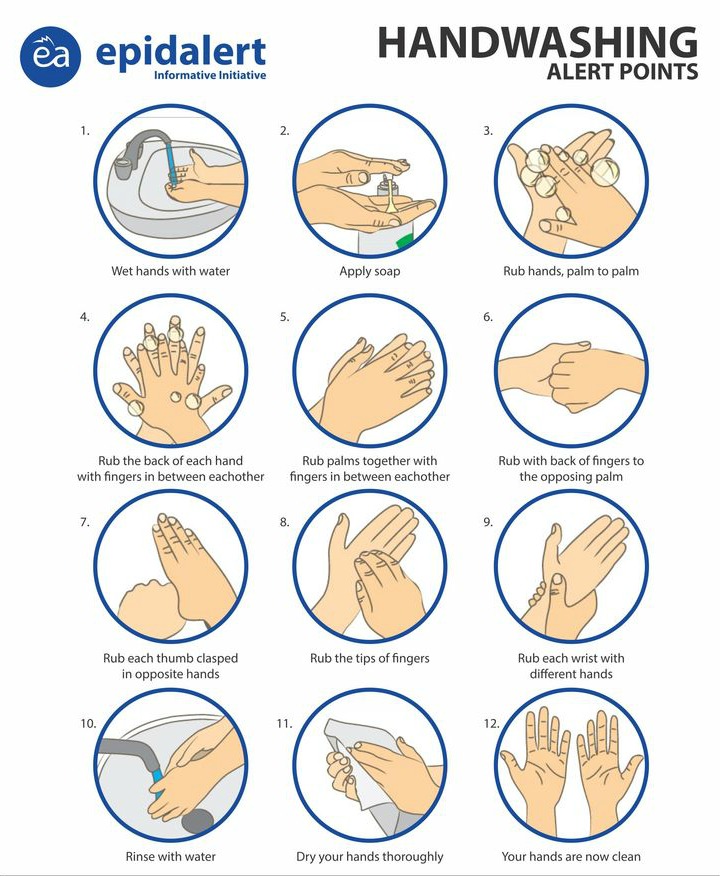
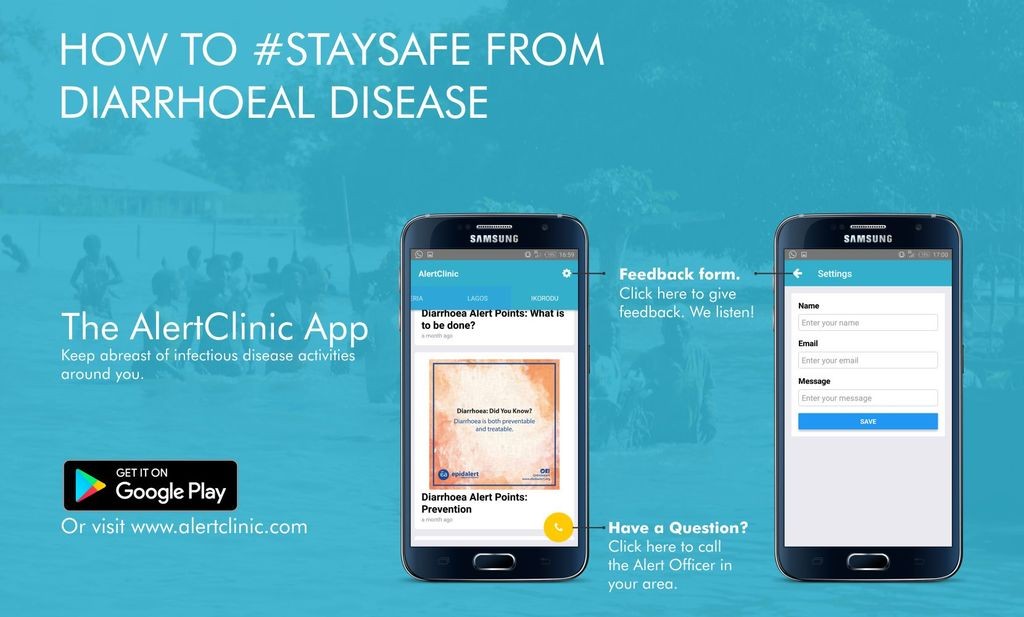
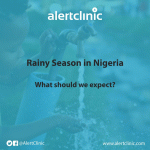

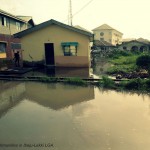
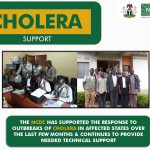
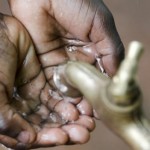






Leave a Reply